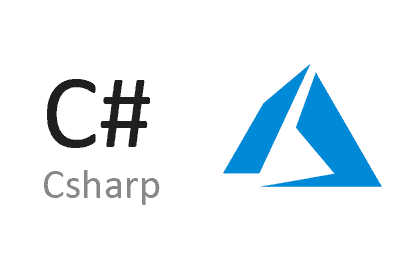Azure, Microsoft’s cloud services platform, offers a wide range of services designed to cover various development, storage, artificial intelligence, analytics, and more needs.
These types of platforms, like AWS, can be a bit difficult to use at first due to their complexity and the large number of available services.
Personally, every time I log in, I can’t remember what half of them are used for 😅. So, to prevent the same thing from happening to you, in this article we will explore the main Azure services, their functionalities, and compare these services with their equivalents in Amazon Web Services (AWS).
Let’s look at a table with some of the most prominent Azure services and their functionalities.
| Service Name | Functionalities |
|---|---|
| Azure Virtual Machines | Infrastructure as a Service (IaaS), allows running virtual machines in the cloud. |
| Azure App Service | Platform as a Service (PaaS), allows creating and hosting web applications and APIs. |
| Azure Functions | Serverless computing (FaaS), allows running code on-demand without managing servers. |
| Azure Storage | Cloud storage for unstructured and structured data. |
| Azure SQL Database | Managed relational database service (DBaaS). |
| Azure Cosmos DB | Globally distributed and scalable NoSQL database. |
| Azure Cognitive Services | Artificial intelligence services for vision, language, speech, and more. |
| Azure Synapse Analytics | Big data analytics and data warehousing. |
| Azure Kubernetes Service | Container orchestration service for managing and deploying containerized applications. |
| Azure DevOps | Set of development tools for collaboration, continuous integration, and continuous delivery. |
Service Explanation
Azure Virtual Machines (VMs): Allows the creation of virtual machines with Windows and Linux operating systems. VMs can be used to host applications, perform testing, and run custom workloads.
Azure App Service: A platform service that facilitates the development and deployment of web applications, RESTful APIs, and mobile applications. It offers automatic scaling and update management.
Azure Functions: Serverless computing service that allows running code snippets in response to events, such as HTTP requests, database changes, or queue messages. Ideal for microservices applications and scheduled tasks.
Azure Storage: Provides cloud storage for blob, file, queue, and table data. Offers high availability and data redundancy.
Azure SQL Database: Relational database as a service that provides scalability, security, and automatic management. Compatible with SQL Server and other SQL tools.
Azure Cosmos DB: Globally distributed NoSQL database that supports multiple data models, including documents, graphs, and wide columns. Offers low latency and high availability.
Azure Cognitive Services: Set of APIs that allow integrating artificial intelligence capabilities into applications. Includes services for speech recognition, image analysis, natural language understanding, and more.
Azure Synapse Analytics: Data analytics service that combines data warehousing, big data processing, and real-time analytics. Allows integration with other analytics and visualization tools.
Azure Kubernetes Service (AKS): Managed Kubernetes service that facilitates the deployment, management, and operation of containerized applications. Offers scalability and automated management.
Azure DevOps: Set of tools that facilitate team collaboration, continuous integration, and continuous delivery (CI/CD). Includes code repositories, CI/CD pipelines, project tracking boards, and more.
Comparison with AWS
Azure and AWS are two of the leading cloud service platforms, each with a wide range of similar services.
Let’s look at a comparative table of some equivalent services between Azure and AWS.
| Azure Service | Functionality | AWS Service |
|---|---|---|
| Azure Virtual Machines | Cloud virtual machines | Amazon EC2 |
| Azure App Service | Web application and API hosting | AWS Elastic Beanstalk |
| Azure Functions | Serverless computing | AWS Lambda |
| Azure Storage | Cloud storage | Amazon S3 |
| Azure SQL Database | Managed relational database | Amazon RDS |
| Azure Cosmos DB | Globally distributed NoSQL database | Amazon DynamoDB |
| Azure Cognitive Services | Artificial intelligence services | AWS AI Services |
| Azure Synapse Analytics | Big data analytics | Amazon Redshift |
| Azure Kubernetes Service (AKS) | Container orchestration | Amazon EKS |
| Azure DevOps | Development and CI/CD tools | AWS CodePipeline and AWS CodeBuild |

